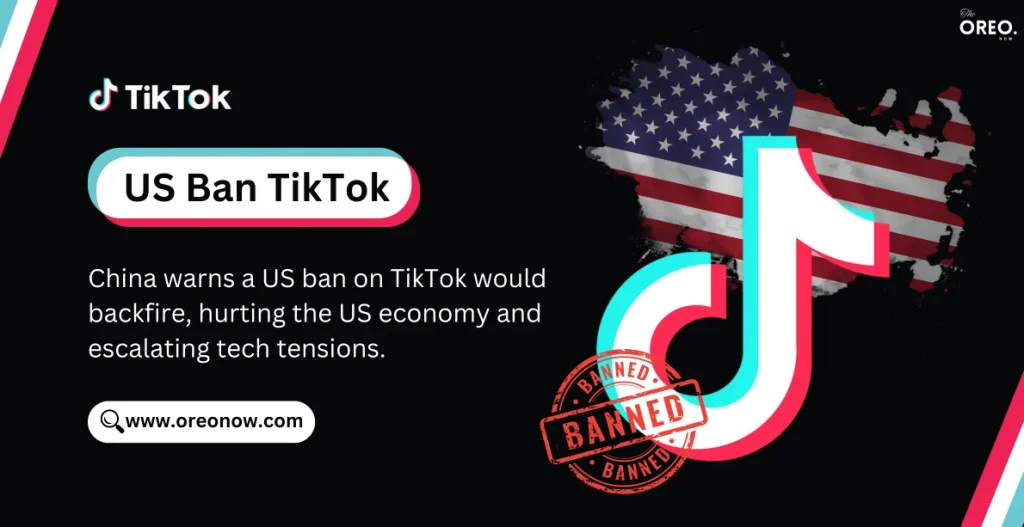US Bans TikTok: China Back Fires, Says US Ban Hurts Both Sides

The simmering debate over TikTok in the US has reached a boiling point. China has strongly condemned a proposed bill in the House of Representatives that could lead to a nationwide ban on the hugely popular video-sharing app. China is not happy that the US bans TikTok. They say it’s a bad idea that could hurt both countries.
The US government has long voiced national security anxieties around TikTok, citing the potential for user data to be accessed by the Chinese government. TikTok, owned by the Chinese tech giant ByteDance, vehemently denies these claims, emphasising data storage outside China and robust security measures.
Why US Bans TikTok?
The US hasn’t banned TikTok yet. There’s a proposed bill in the House of Representatives that could lead to a ban, but it faces several hurdles.
The reason behind the potential ban is national security concerns. US officials worry that user data collected by TikTok could be accessed by the Chinese government. This is because TikTok is owned by ByteDance, a Chinese company.
However, it’s important to consider different perspectives:
- US Security Concerns: The US government believes user data might be a security risk.
- China’s Denial: TikTok denies these claims and insists on data security measures.
- Competition Angle: China suspects the US is trying to curb competition from a successful Chinese app.
How did China react to the US Bans TikTok News?
The Chinese Foreign Ministry sees the proposed ban as a blatant attempt to stifle competition. Spokesperson Wang Wenbin stated that despite “no evidence” of a national security threat, the US continues to “suppress TikTok.” This, China argues, is “bullying behaviour” that disrupts normal business operations and discourages international investment in the US.
How will this affect the US economy?
China warns that a ban on TikTok would have wider economic ramifications. It could damage the overall investment environment in the US, sending a chilling message to foreign companies. The ban could also disrupt a platform enjoyed by millions of Americans and become a point of contention in the already strained US-China trade relationship.
Key Points
- US bans TikTok: US officials worry that user data on TikTok could be accessed by the Chinese government, posing a national security risk.
- Disagreement with Security Concerns: China argues the US has no evidence TikTok threatens national security.
- Accusation of Unfair Competition: They view the ban as a way to stifle competition from a successful Chinese company.
- Economic Impact: China believes the ban would hurt the business environment and discourage foreign investment in the US.
While the House has approved the bill, it still needs Senate approval and President Biden’s signature to become law. The future of TikTok in the US remains to be determined. The debate highlights the increasingly complex landscape of technology, national security, and global competition.



